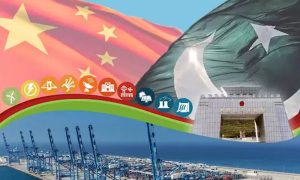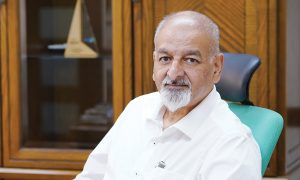Court of Arbitration on 330MW Kishangaga and 850MW Ratle hydroelectric projects would be established by the end of November 2016. This was disclosed by Secretary Water and Power, Younus Dagha at a briefing to a parliamentary panel headed by Senator Ghaus Muhammad Khan Niazi which met in the Parliament House.
The Secretary Water and Power said that everyone is talking about the Baghlihar hydroelectric project and Kishanganga hydroelectric project but no one is appreciating the Ministry of Water and Power’s efforts of taking timely action with respect to 850MW Ratle hydroelectric plant on which work has not been initiated by India so far.
We are vigilant and have reached the stage of arbitration in time,he added.
He said India cannot stop Pakistan’s waters as in run of the river projects water has to be dropped in the river as poundage (temporary storage) though there is no storage facility in the design. The Indus Water Treaty 1960 does not allow India to construct poundage in a way which can store water for a longer period. The poundage is not in accordance with the best practice in the world and this is a key objection from Pakistan.
The biggest poundage is of Kishanganga which can store 6000-7000 acre feet of water which does not have a substantial impact on flows to Pakistan as ultimately the stored water in poundage will have to be released to the river.
He said in the case of Baghlihar hydroelectric project Pakistan opted for a neutral expert but could not get the verdict of its choice. However, in the case of Kishanganga hydroelectric project most of Pakistan’s points were acknowledged due to which India is avoiding going to the court of arbitration. Meanwhile, India is trying to have a neutral expert appointed. After this Pakistan’s legal experts would judge which forum is better.
“Now India is asking the World Bank to appoint a neutral expert and opposing arbitration but the World Bank replied that the Bank will go for both,” he added. Pakistan is taking design issues seriously.
“We all should know that there are international laws for low riparian countries and even if there is no Treaty there are other international laws which protect their rights,” he continued.
He argued that if India sets aside all international laws then it would be treated as an aggressor. “We are not going to let India get away with it regardless of the fact where water comes from in river Jehlum. We are very serious on the design issues,” he maintained.
Secretary Water and Power said the government has decided to conduct an environment study of Indian hydroelectric projects being constructed in Held Kashmir so that in future this aspect should also be raised at different international forums.
Earlier, Senator Sherry Rehman who was the mover of an adjournment motion on the Indus Water Treaty 1960, said the Treaty was not negotiated with India properly. She argued that India is building run of the river projects one after the other and Pakistan is not responding properly.
She proposed that the standing committee should recommend to Chairman Senate to formulate Senate’s Whole Committee on water issues with India and within provinces. However, the committee did not agree with Senator Sherry Rehman and decided that a sub-committee of Senate Standing Committee would get detailed briefings from the experts on this issue.
Ministry of Water and Power has started work on the National Water Policy 2016 which will be presented to the Council of Common Interests after due consultation with the provinces.
Senator Nauman Wazir and Senator Nisar Muhammad recommended that the Ministry should give a detailed briefing on telemetry system besides fuel mix including solar and wind projects.
The Secretary Water and Power noted that the committee would be briefed on seven hydel, three thermal and three other power sector projects in the next meeting.







